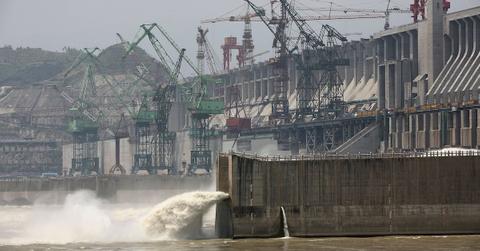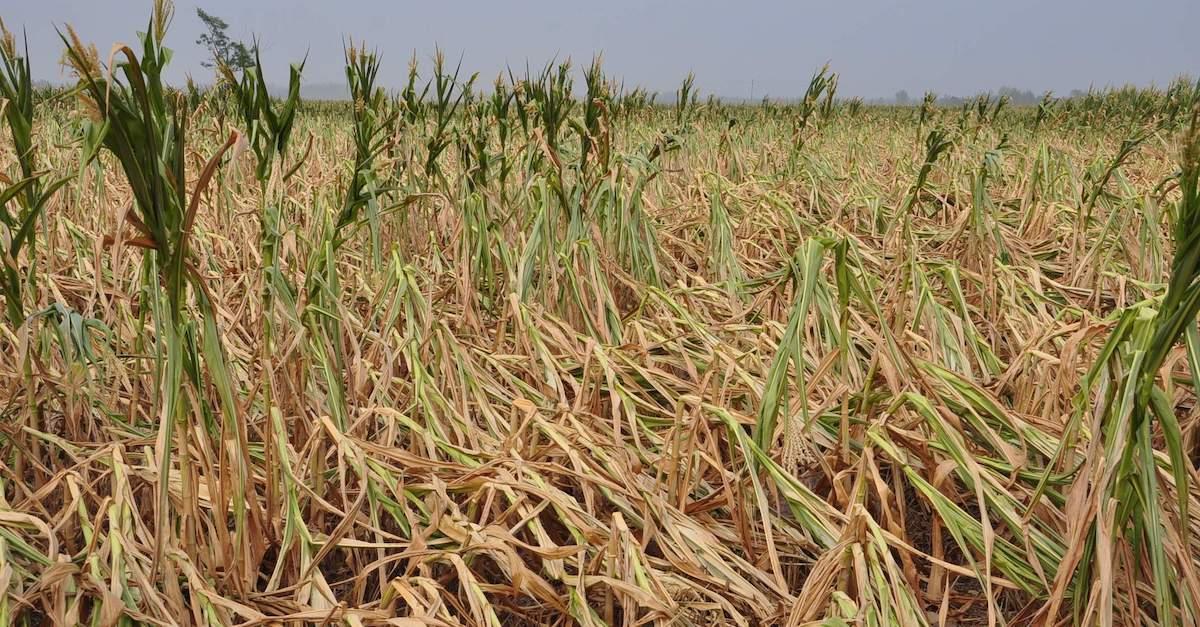Hydropower at China’s Largest Plant, Three Gorges Dam, Stunted by Ongoing Drought
Updated Oct. 27 2022, 12:28 p.m. ET

Though hydropower is one of the oldest and reliable sources of green energy, it's taking a major hit from the climate crisis.
Power production is suffering at China's largest hydropower plant, Three Gorges Dam, as a result of a drought that's been going on for decades now. Power production fell by at least 30 percent last month. And because the country so heavily relies on the green fuel source, local factories have had to shut down, resulting in serious supply chain issues.
Without water, it's nearly impossible to generate hydropower.
“Worsening drought conditions as part of climate change will start to limit the availability and dispatch-ability of hydro reservoirs and lower the capacity factor in places like Southwest China and Western US, ” stated Xizhou Zhou, managing director for power and renewables at S&P Global Commodity Insights, via Bloomberg.
China has the most hydropower dams in the world. But with the Sichuan drought going on for upwards of 60 years, it's posing a major problem to locals and businesses alike.
“When such an event takes place, it does two things — it reduces power supply and enhances power demand, so there’s a double whammy,” Greenpeace analyst Li Shuo also told Bloomberg.

China's drought is preventing hydropower production.
Even though China's drought is a result of climate change, the climate crisis is unfortunately making it harder for them to produce clean energy.
This summer, the dam — which is usually rushing with white water — was incredibly quiet. Spanning the length of the Yangtze River, it's considered the largest plant of its kind, globally. But according to Brand Synario, harsh weather, heatwaves, and droughts, which have evaporated both rivers and reservoirs, is quashing energy production.
Despite China's, and even most of the Philippines' dependence on hydro-energy from Three Gorges Dam, utility companies are starting to look for other options.
Wenxuan Xie, Managing Connsultant at Wood Mackenzie Ltd., stated via Brand Synario: “You really need to consider the likelihood of severe occurrences and the possibility that something you earlier considered to be extremely unlikely might occur more regularly.”
Bloomberg suggests that countries dealing with unreliable hydro turbines invest in nuclear, wind, or solar power. Other options include building more power lines, or installing floating solar panels on hydro reservoirs, to produce power when water starts evaporating in the sun. China has already started doing this.
“The combination of hydropower together with solar works well,” Lei Xie, energy policy manager at the International Hydropower Association told Bloomberg.
What are the pros and cons of hydropower?
Because droughts are becoming more pervasive with global warming getting worse, they do pose a problem when water levels get low. There are other problems that come with hydropower, too.
According to MIT's Environmental Solutions Initiative, it can also reduce river flows, make water temperatures warmer, worsen water quality, and create sediment build-up, affecting fish, birds, and other animals in the ecosystem.
In the long run, though, hydropower is better — to some extent it's renewable (as long as we have water, of course), and it's much cleaner than oil and gas.
But if something isn't done about the ongoing droughts, it could lead to even more power cuts in communities that depend on it.